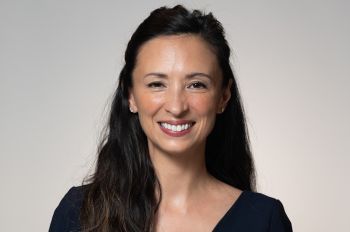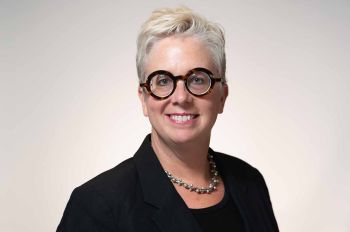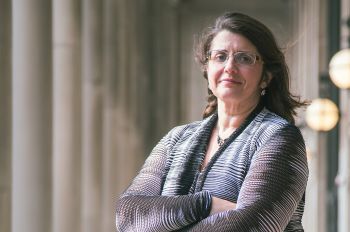Crime Expert Lands ‘Dream’ Job as Faculty Member at Chicago-Kent

“It’s not an exaggeration to say this is my dream job,” says Zach Sommers, who began his role as an assistant professor at Chicago-Kent College of Law in fall 2024. “I was pretty confident that I wanted to end up one day in academia.”
Sommers joined the Chicago-Kent faculty from the white-collar-crime group at Kirkland & Ellis, where he spent four years. In his time at Kirkland & Ellis, he served on all sides of the table: conducting investigations, defending against them, and even running white-collar crime risk assessments.
“I went straight from undergrad to law school to grad school, so it seemed like maybe before switching sides and trying to become a professor that it would be good to get some practical experience to inform my teaching and research,” he says.
Crime is something that Sommers has always been interested in. He earned his B.A. in criminology and psychology from the University of Pennsylvania and his Ph.D. in sociology from Northwestern University.
His dissertation focused on bias in policing, plea bargaining, and terrorism.
“I am really interested in the way that different people interact differently with the criminal law apparatus in our country,” he says, “and vice versa, both how people experience it and how it is imposed upon them.”
Sommers’s early research focused on more traditional “street” crime, but his time in practice opened his eyes to a whole different system.
“I had previously only thought about it on the personal level, that when an individual gets arrested, for example, how police are going to interact with different types of people varies depending on who they are,” he says. “In the white-collar space, it’s how government officials are going to treat companies versus individuals. Then there’s also the spectrum of mom-and-pop shops facing regulators versus Apple, for example.”
Sommers says that this difference often has a lot to do with budgetary constraints.
“We funnel billions of dollars toward police departments and give them all sorts of crazy equipment, military-grade equipment to do their jobs,” Sommers continues. “The regulators and the government attorneys who are tasked with enforcing white-collar laws have enormous budget, manpower, and resource limitations.”
He is also interested in public perception of crime, especially how it relates to media coverage.
“The American public, we are terrible at gauging actual trends in crime,” he says. “We always think that crime is horrible. It’s the worst it’s ever been, no matter what actual data shows us, because if it bleeds, it leads, right?”
Sommers has also written extensively about “Missing White Woman Syndrome,” a reference to media outlets’ tendency to give more coverage to attractive young white women and girls who go missing compared to other missing persons. He makes frequent media appearances speaking about the discrepancy, which he first started studying when he was still in college and passed a TV bank playing cable news covering the disappearance of a young woman.
“It was a young white woman who I think was in college, was in a sorority, was blonde, and fit a lot of people’s stereotypical definitions of beauty,” Sommers recalls. “I just remember thinking to myself, ‘She looks a lot like every other person I’ve seen who has gotten news coverage when they go missing.’”
As much as Sommers learned during his time at Kirkland & Ellis, he is happy to finally be fulfilling his lifelong dream of teaching and researching at a law school. The fact that he’ll be teaching at Chicago-Kent makes his career change a little extra sweet.
“One of the best parts, without fail, at every interview, were the schools that carved out some time to meet with students,” he says. “I had some of the best conversations I’ve had at any interview with Kent students. Kent students made me so excited for the job.”



